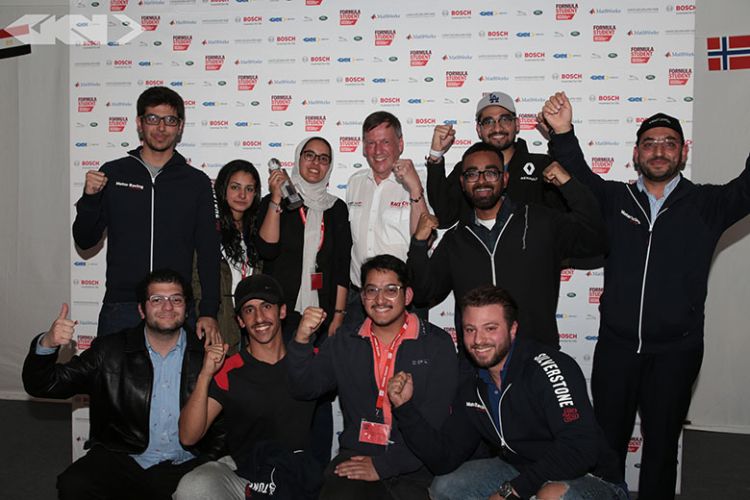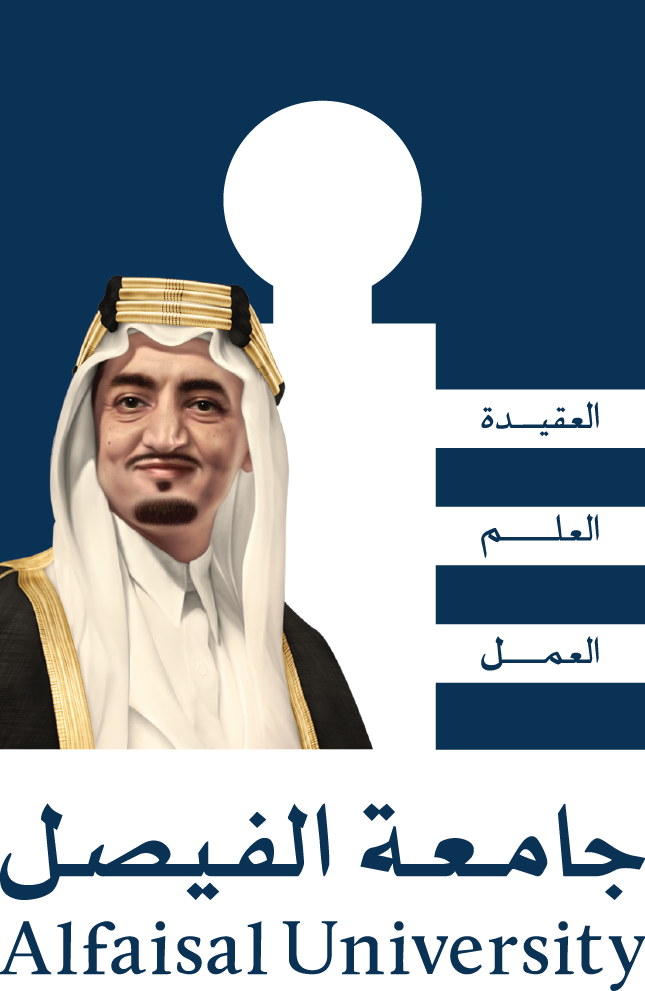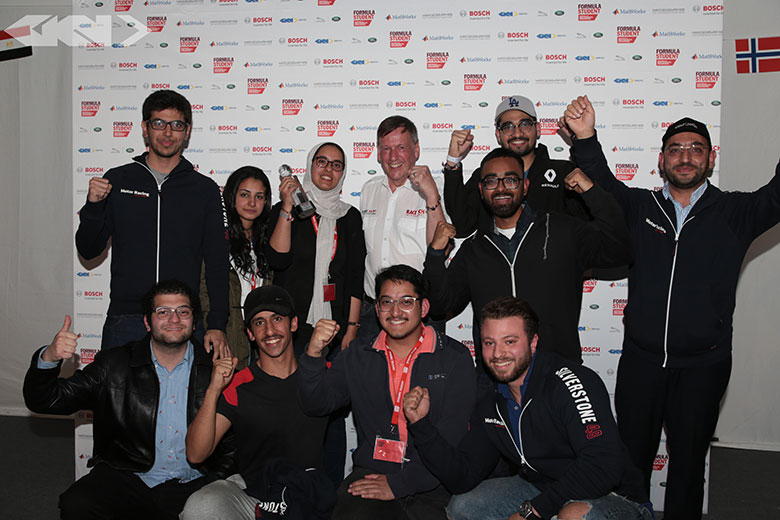A racing-car competition as an industry incubator

Sponsored by

Sponsored by

Alfaisal University’s participation in the Formula SAE student competition aims to boost Saudi Arabia’s engineering expertise and its automotive industry
Launched in 1981 by the Society of Automotive Engineers (now SAE International), Formula SAE is a student design competition that attracts hundreds of prestigious universities from around the world. The concept is straightforward: to develop a small Formula-style racing car that can be marketed to non-professional “weekend” racers. The on-track safety and performance bars are high, and more than theoretical credibility is on the line: the prototype must be tested and driven by the students themselves.
In 2017, Alfaisal University became Formula SAE’s first Saudi Arabian participant. The university’s Haizum team left the competition, held at the UK’s legendary Silverstone circuit, with the Race Tech Spirit of FS award. Now, in 2020, Alfaisal continues to compete on the international stage, its participation designed to boost its hands-on engineering expertise, professionalism, problem-solving and team-building, and showcase the Kingdom’s ambitions in both the motor industry and motor sport.
“Formula SAE is a unique opportunity for our engineering students to gain hands-on experience and apply their engineering knowledge through the construction of an ultra-effective vehicle,” says Muhammad Anan, acting dean of engineering. “The College of Engineering is proud of Alfaisal’s Haizum team, the faculty adviser and their achievement this year. We are also very thankful to our leadership and their continuous support.”
Abdel Naser Daoud, lecturer in mechanical engineering, describes Formula SAE as a “capstone” project for Alfaisal, because it links the applied knowledge of a hands-on engineering project with the Kingdom’s Vision 2030, which aims to create a more diverse and sustainable economy that is less dependent on oil exports.
Developing and localising a motor industry in Saudi Arabia is of key importance to Vision 2030: Dr Naser points out that as a motor industry is established, it tends to incubate other industries, as supply chains for components, tyres, batteries and more develop. The project is intended to form part of Alfaisal’s talent pipeline to supply the Saudi Arabian motor industry with the engineers, designers and leaders it will need as it establishes itself.
Dr Naser recalls the initial participation in 2017. “Things were not easy for a small and young university at first… just to get on the track we had to pass through a lot of barriers,” he says. Buoyed by that first success, though, the university has continued its work. Now, 15 students are participating, their ranks including – and led by – women, and students from Saudi Arabia, India, Pakistan, Palestine, Egypt, Nigeria and more have so far been part of the project.
As Alfaisal’s Formula SAE project has progressed, it has continued to develop the internal combustion prototype pioneered in 2017, which is continually being improved and tested on tracks in Saudi Arabia. In parallel with Saudi Arabia hosting events in the Formula E electric motor racing competition in late 2019, which enabled Alfaisal’s Formula SAE project to be promoted at accompanying exhibition events, the student team is working on an electric-powered version, too. This, Dr Naser says, is still at the design stage. The goal is for the first electric prototype to be built in 2021 – but like much of the other work on the project it is halted because of the coronavirus pandemic.
Although the incorporation of electric vehicles underlines that sustainability and energy efficiency are aspects of the competition and the project, Dr Naser stresses that the project is primarily geared around performance. “All the world is going towards renewable energy, and electrical cars and autonomous cars can help with that. But in Formula competitions, we are going for speed and performance. This is not the Shell Eco-marathon [another competition in which Alfaisal has participated].”
Beyond the engineering challenge, the other key aspect of the Formula SAE competition – to develop a consumer product that can be brought to market – aligns closely with the goal of Saudi Arabia’s Vision 2030 to create a viable motor industry in the Kingdom. The Formula SAE project is also multidisciplinary, with input from not just Alfaisal’s engineering departments but also those with expertise in bringing products to market, in time management and more. To keep playing its part in Vision 2030, Alfaisal plans to develop a training module based around the auto industry “especially for the Saudi market” and has established an automotive engineering centre. Other projects, such as its Boeing-funded solar car project, complement this and are in progress.
As the Formula SAE project has developed, it has faced challenges, not least the sourcing of materials, which underline the infant nature of the motor industry in Saudi Arabia. “Tyres, engine components – we have had to source everything from outside,” says Dr Naser. Equipment, such as the oven for curing the carbon fibre and the CNC routers for the moulds of the prototype, has also been difficult to source. Improvisation has played a part. “We have used companies with ovens for other applications,” he explains.
Sponsorship is another challenge. SABIC, the giant Saudi multinational chemical company, a subsidiary of Saudi Aramco, was a key Alfaisal sponsor in 2017, covering 50 per cent of the project’s costs. For Dr Naser, securing sponsorship of the entire project is Alfaisal’s goal. “Some sponsors want exclusive rights, but do not want to meet 100 per cent of the costs,” he says, adding that he envies teams from Europe, “where you will see cars with maybe 30 sponsor stickers on them. We are trying our best.”
Some help has come from Siemens through free software licences, but the lack of a developed motor industry in Saudi Arabia means that local and international partnerships are absent for now, although Dr Naser hopes to attract interest from companies producing the likes of electrical components and batteries.
Dr Naser also hopes that, in time, the Formula SAE competition will come to Saudi Arabia itself, which would have the added advantage of making participation more cost-effective for Alfaisal. This, he hopes, will result in participation from other universities in Saudi Arabia and the wider Middle East region (full-circuit Formula racing tracks already exist in Bahrain and Dubai). “This would develop the professionalism of the industry and increase the efficiency of cars, as Saudi Arabia becomes a motor sports player.”
Learn more about Alfaisal University.
